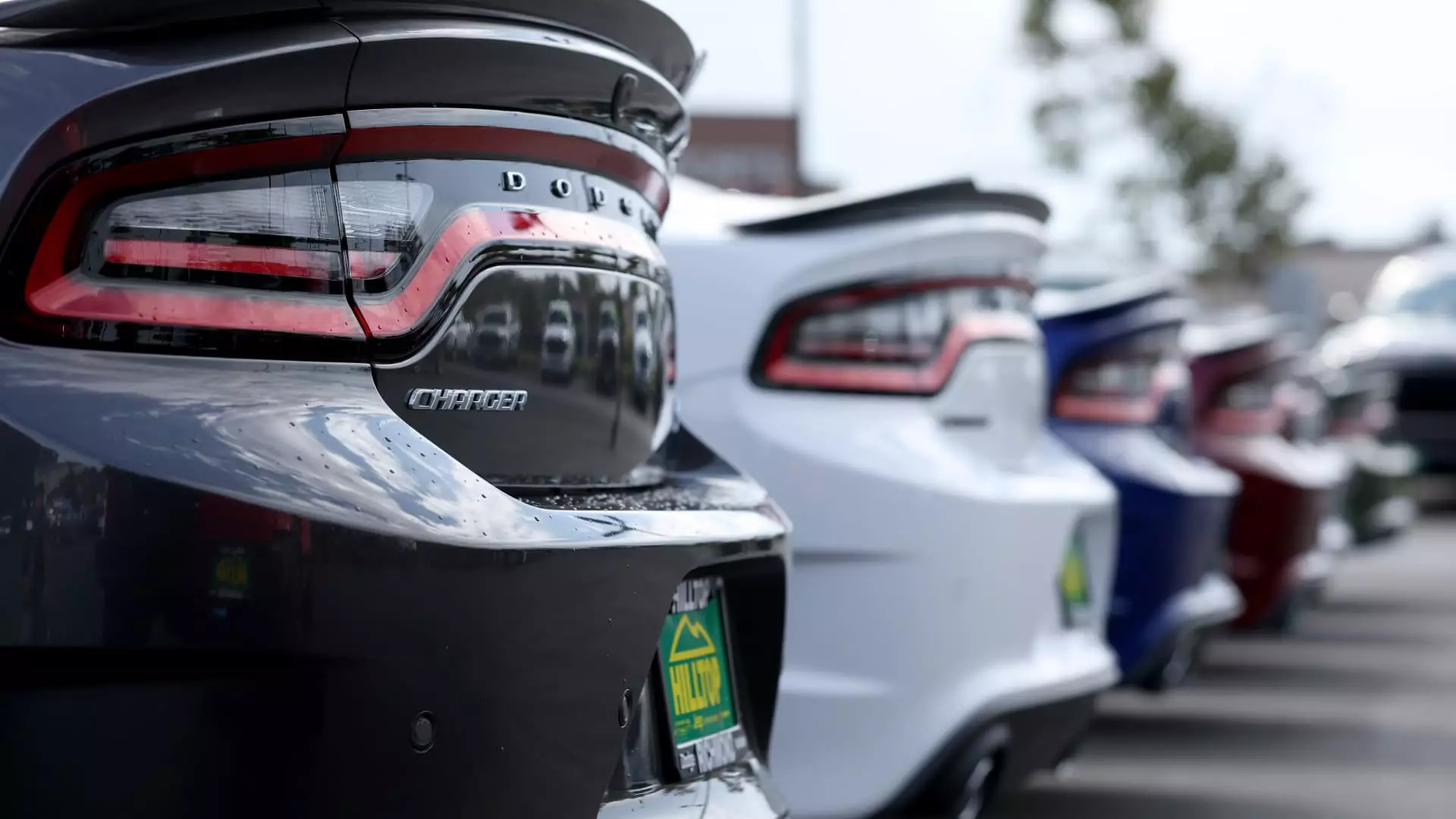The automotive industry in Europe is at a critical juncture as prominent car manufacturers like Stellantis and Aston Martin recently issued stern profit warnings. This development is symptomatic of deeper underlying issues affecting the sector, especially regarding market performance in China and overall global dynamics. As the industry grapples with increased competition and economic headwinds, stakeholders are left to ponder the implications of these warnings for the immediate future.
Stellantis, a major player formed from the merger of Fiat Chrysler Automobiles and PSA Group, preemptively cut its guidance for 2024 amid what it described as a downturn in global industry dynamics. The company announced a reduced adjusted operating income (AOI) margin forecast, now pegged between 5.5% and 7.0%. This revision marks a stark contrast to its previous expectations of a “double-digit” margin, reflecting a broader trend detrimental to European automakers. The warning implied that expected sales would be lower than anticipated across various regions for the latter half of the year. This raises questions about the long-term sustainability of Stellantis in an increasingly competitive global market.
Following Stellantis’s lead, Aston Martin also lowered its profit margin projections and production targets, citing challenges in its supply chain exacerbated by persistent economic weakness in China. The company’s strategy to reduce output by approximately 1,000 units is indicative of the tough decisions manufacturers are compelled to make in light of faltering sales and operational disruptions. Aston Martin’s expected EBITDA for 2024 is now projected to fall short of the previous year’s performance, an alarming forecast for a brand synonymous with luxury and performance.
The world’s largest automobile market, China, has become a focal point for European manufacturers. While it offers substantial opportunities for growth, it is increasingly becoming a battleground dominated by local manufacturers who excel in producing electric vehicles (EVs). The aforementioned profit warnings highlight how European brands, long considered premium, are finding it difficult to compete in the Chinese market, which is undergoing a significant transformation.
The implications are severe. As European automakers shift their focus toward electric vehicles to align with global trends, traditional structures and strategies may not suffice. The competitive landscape has changed dramatically, compelling carmakers to innovate rapidly or risk obsolescence. Thus, the deteriorating performance in China may not just be a temporary setback but could signal broader existential challenges ahead.
The investor reaction to the profit warnings from Stellantis and Aston Martin has been swift and harsh. Stellantis’s shares plummeted by 13% soon after the announcement, while Aston Martin’s stock fell dramatically, leading to one of its worst trading days since the onset of the COVID-19 pandemic. The urgency of these declines reveals a lack of confidence among shareholders, as both companies struggle to articulate clear strategies for recovery in a tumultuous market.
Adding to the woes is a lawsuit faced by Stellantis from U.S. shareholders who allege that the company misled them about rising inventories and financial health. Such legal challenges could further complicate Stellantis’s prospects as it attempts to navigate through the current storm. The carmaker’s dealer network has expressed dissatisfaction with executive decisions that appear to have exacerbated sales declines, highlighting internal dissent that may affect future operational strategies.
Volkswagen, another giant in the European automotive sector, also recently lowered its outlook, adjusting its operating return on sales for 2024. The compounded profit warnings from Stellantis and Aston Martin, alongside Volkswagen’s reassessment, paint a grim picture for European carmakers.
As these players grapple with national markets that are yet to recover to pre-pandemic levels, the shift toward EVs introduces new hurdles. Analysts have indicated that the accelerated transition toward electric mobility is intensifying pressure on European manufacturers to rethink their strategies to remain relevant and competitive.
The storm clouds gathering over the European automotive industry are thickening as significant profit warnings signal a shift in market dynamics driven by increased competition, particularly from China, alongside unpredictable macroeconomic factors. It remains to be seen how affected manufacturers will adapt and thrive in this challenging landscape, but one thing is clear: the status quo is no longer tenable for Europe’s proud automotive legacy.

